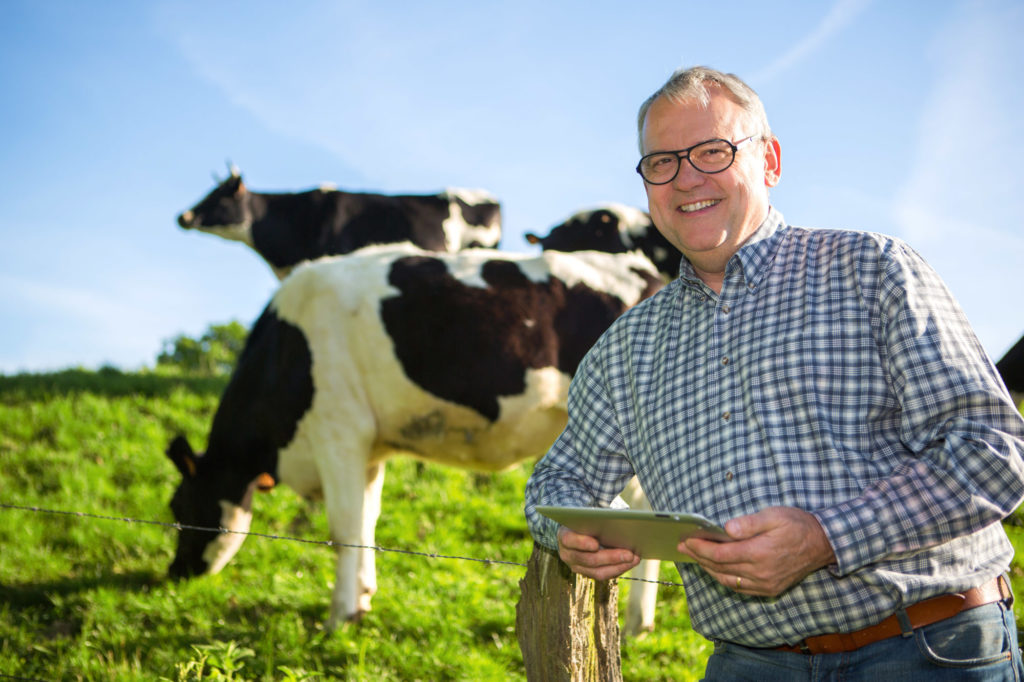Convenors: Associate Professor Vaughan Higgins (University of Tasmania, Australia); Dr Jérémie Forney (University of Neuchâtel, Switzerland); Professor Michael Carolan (Colorado State University, USA); Associate Professor Steven Wolf (Cornell University, USA); Dr Laurens Klerkx (Wageningen University, The Netherlands); Dr Kelly Bronson (University of Ottawa, Canada)
Objectives: The WG engages directly with conference theme (1) Innovation, Artificial Intelligence and Digitisation, and specifically ‘technology’. It does so through the following objectives:
- Investigate the human and non-human relations through which digital agriculture is assembled as an object and vehicle of rural and food governance.
- Investigate the challenges and opportunities posed by digital agriculture in creating more sustainable rural and food futures.
- Explore the ways in which digital technologies are implemented/adopted in agricultural and food practice within and across different geographical regions and rural industries, and the implications for rural social relations and environments.
Following the conference, the convenors intend to develop and submit a journal themed issue proposal based on the papers presented in the WG (and other invited papers if required). A longer-term aim of the WG is to develop international research collaboration amongst sociologists conducting research in digital agriculture.
Topic: Digital agriculture refers broadly to the application as well as integration of information and communication technologies (ICTs) for improving efficiency, productivity and sustainability in agricultural production. These technologies include precision farming equipment such as sensors, robotics, drones, global positioning systems (GPS) and the use of Big Data. Such technologies have been forecast as being the solution to the problem of how to produce more food for a growing world population whilst protecting the environmental resource base upon which agriculture depends. However, to date, there has been little critical sociological analysis of digital agriculture and its implications for rural and food sustainability. The purpose of this Working Group is to critically examine the relationship between digital agriculture and rural and food sustainability. We specifically invite papers that:
- Unpack the meaning of ‘sustainable’ rural and food futures in the context of digital agriculture;
- Explore how digital agriculture is assembled as an object and vehicle of sustainable rural and food governance;
- Examine the ways in which digital agriculture intersects, and is constituted through, other processes of rural governing such as financialization, standardization and neoliberalization;
- Historicize contemporary debates and update sociological analysis of digital agriculture in relation to analyses from the 1990s (e.g., Wolf and Wood; Wolf and Buttel);
- Investigate the possibilities for contestation, resistance, and alternative ways of organising/performing the relationship between digital agriculture and rural and food sustainability.
- Provide detailed case studies of how digital agriculture is implemented within specific regions and/or industries; and,
- Develop new or novel ways of conceptualising the relationships and tensions between digital agriculture and rural and food sustainability.
The Working Group is sponsored by RC-40 and the ESRS Research and Study Group “Digital Agriculture and Smart Foodscapes”.
Format: Our preferred format is a traditional workshop. However, depending on the level of interest in the WG we may consider other formats.
| Session # | Session title | Presenters |
| Session 1 | Enacting and adapting digital agriculture technologies on-farm | Hahn et al |
| Dolinga | ||
| Forney | ||
| Higgins et al | ||
| Lioutas et al | ||
| Session 2 | Responsible innovation and the development of digital agriculture | Brunori et al |
| Jakku et al | ||
| Regan | ||
| Reichelt | ||
| Session 3 | Institutions, intermediaries and networks in the governing of digital agriculture | Bechtet |
| Wolf | ||
| Di Bianco | ||
| Fielke et al | ||
| Session 4 | Human-non-human assemblages and the implementation of digital agriculture | Klauser |
| Soraa and Vik | ||
| Thompson | ||
| Legun | ||
| Session 5 | Digital agriculture and the future of farming: competing visions of sustainability | Straete et al |
| Gharios | ||
| Bronson | ||
| Calo | ||
| Boyce et al |
Abstracts
Working Group Session 1 Wed 09:00 – 10:30
- Kimberly Hahn – How global digital agricultural techniques face local contexts: an innovation systems analysis of Smart Dairy development in Southern Chile
- Moritz Dolinga – Practices, politics and the renegotiation of “regimes of living” in a digital transforming agriculture
- Jérémie Forney – Beyond fascinating smart tools: “everyday digitalization” and the governance of agriculture and food
- Vaughan Higgins – Farmer Uncertainty and the Localised Ordering of Smart Farming Technology
- Evagelos D. Lioutas – It is smarter but is it smart? And, if so, is it farming? Managing the transition from process-driven to data-driven farming
Working Group Session 2 Wed 11:00 – 12:30
- Gianluca Brunori – Promoting Adaptive Capacity in the Digitization Process of Rural Areas: The DESIRA Methodology
- Emma Jakku – Responsible Futures: Navigating Digital Technology Transformations in Australian Agriculture
- Áine Regan – A Qualitative Study Exploring Conditions, Capacity and Willingness to Embed Responsible Research and Innovation Principles in “Smart Farming” in Ireland
- Nicole Reichelt – Unpacking a Responsible Innovation Pathway to Progress our “Digital Agricultural Dreams”: The Case of Virtual Herding Technology in Australia
Working Group Session 3 Thur 09:00 – 10:30
- Noémie Bechtet – The role of intermediaries in farmers’ adoption of precision farming tools. The case of crop input modulation tools in the southwest of France.
- Steven Wolf – Digital agriculture infrastructure: Prospects for adoption, innovation, and disruption
- Soazig Di Bianco – Digitalization of advisory services in agriculture: towards new cooperation between farmers and advisers?
- Simon Fielke – Changing knowledge networks in farming: digi-grasping for environmental management outcomes in agriculture
Working Group Session 4 Thur 11:00 – 12:30
- Francisco Klauser – Big Brother meets Animal Farm: Surveillance implications of smart farming
- Roger A. Søraa and Jostein Vik – Digital fences for goats in Norwegian agriculture
- Merisa S. Thompson – Changing Relations between Humans, Animals and the Environment in New Zealand Dairy: The Role of Digital Technologies
- Katharine Legun – Post-Automation: Exploring the Interface between Decision-Making Technologies and the Meaning of Labour
Working Group Session 5 Thur 14:00 – 15:30
- Egil Petter Stræte – The milking robot as driver for dairy farming system restructuration?
- Cynthia Gharios – New geographies of agricultural production in Morocco
- Kelly Bronson – The competing sustainabilities of digital agriculture
- Adam Calo – Land Access Mapping in a Tenancy Universe: A participatory mapping framework to facilitate farmland access
- Wendy Boyce – New business and governance models for increasing trust and value equity in digitalised value chains: A review of the literature

